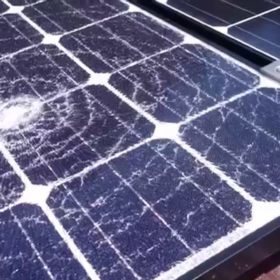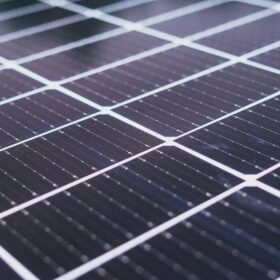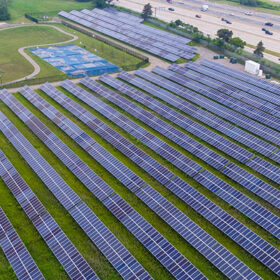The U.S. House Energy and Commerce Committee’s Republican members sent a joint letter to the Department of Energy’s Loan Program Office (LPO), on December 7, 2023. They expressed “outrage” over a reported incident of an elderly man allegedly being pressured into a 25-year solar lease by a salesperson. The joint letter is being used to highlight the aggressive or potentially misleading sales tactics that are sometimes employed by contractors of national residential solar companies.
This incident reflects a complex situation. Republicans in Congress are seeking to undermine the transition to local, clean electricity by signaling “outrage”, meanwhile, solar sales companies are grappling with the challenges posed by commission-motivated private contractors, whose sales tactics strain the industry’s reputation.
Residential solar companies have had lawsuits initiated by state attorneys general in Arizona, New Mexico, and Connecticut, largely due to aggressive sales tactics. These same in-home sales techniques prompted California to mandate a comprehensive 24-page Solar Consumer Protection Guide in 2021.
The Joint Letter, addressed to the LPO’s department head, Jigar Shah, specifically addresses Sunnova’s recently awarded $3 billion loan guarantee. This significant loan from the LPO is earmarked to finance up to 90% of “Project Hestia.” The project’s aim is to broaden access to solar and virtual power plant (VPP) services, particularly for disadvantaged communities that typically struggle to secure financing for residential projects.
Sunnova stands out in the industry for integrating individual residential solar and storage installations into the broader power grid. Despite the initial rejection of their Califlornia microutility, its innovative approach is recognized as cutting edge, and will set precedent for future energy deployments.
The joint letter details allegations of unethical sales practices of a Sunnova contractor. It describes an instance of alleged exploitation: “a door-to-door Sunnova salesman sold her father—who she characterized as in hospice care—a $60,000 solar system for his mobile home shortly before his death.” It also references complaints from a 2019 USA Today article regarding Sunnova’s expanding market in Puerto Rico.
The Committee requests all documents related to Sunnova’s loan approval, previous sales complaints, consumer protection measures, and the company’s financial status. They also inquire about LPO’s oversight of Sunnova’s sales practices.
By the end of the third quarter of 2023, Sunnova had amassed approximately 386,000 customers, adding 37,000 customers in the third quarter alone. The company anticipates that they will have added 135,000 to 145,000 new customers in 2023.
In response to the Committee, Sunnova outlined their position in a letter to investors on December 11, 2023, reaffirming their “commitment to Project Hestia, ethical business practices, and customer service.” The letter cited Sunnova’s role as the primary risk-bearer in the $3 billion loan, its expanded service team, the offering of 25-year warranties, and the operation of a “state-of-the-art Global Command Center” to oversee its numerous solar projects.
The company specifically mentioned the expansion of its support services in Puerto Rico, where the Global Command Center plays a crucial role, reflecting the island’s growing importance in their business strategy.
Regarding the LPO’s reaction, while no official statement has been released, Jigar Shah of the LPO expressed support for Project Hestia and Sunnova in general via a tweet:
LPO firmly stands behind Project Hestia, which will expand solar access to up to 115k US homes. We held @SunnovaEnergy to the highest standards in our due diligence, which they’ve met with enthusiasm since day 1, while implementing new customer service programs.
— Jigar Shah (@JigarShahDC) December 12, 2023
pv magazine USA reached out to Kelsey Hultberg, Sunnova’s executive vice president of communications and sustainability, with several queries about the company’s handling of customer support challenges over the past year.
This content is protected by copyright and may not be reused. If you want to cooperate with us and would like to reuse some of our content, please contact: editors@pv-magazine.com.








Great information. If I knew then what I know now I would have never hot solar panels on my home. I have a total of 43 panels for a 1600 sqft home. The sales person told me I would produce way more solar than what I use therfore I would be getting “money back” at the end of the year. Well here we are and since I got the panels on my home my electric bill has doubled. One because I was never told to contact my electric provider (Reliant) to change my plan to a buy back program. So I was on average billing with solar panels. That defeats the purpose of having a lower bill. Speaking of buy back wow, I get charged for the solar I produce at .15 per kw, my provider but back at .045. They charge me a higher rate but I can not sell them power at the same rate. Second the sales person never told me I would be getting now two electric bills, one from the provider and one from Sunnovo. I live in Texas (central) sun shines a lot. As I stated earlier I am producing solar and only a small amount is over according to the sales person I should be producing %140 to %150. Those numbers don’t add up. Third sunnovo says for example I produced 840kw of which I get charged for but Reliant says 630 kw. One would think those would be the same something is off somewhere. Bottom line for the past few months since August my electric bill has doubled. I called the provider and Sunnovo about the issues and all they do is blame each other. Lastly batteries are not an option they cost as much as my home. One final thought here, Sunnyvale recently contacted me wanting to to basically go on average billing as well. Um that’s a big NO as the monthly price would increase every year. By the time the 25th year rolled around I would be 80 years old and on a fixed income and $575 per month would not be in the budget for sure. If I can’t pay the electric bill now while I’m working I really wouldn’t be able to pay it then.